Physical Address
304 North Cardinal St.
Dorchester Center, MA 02124
Physical Address
304 North Cardinal St.
Dorchester Center, MA 02124
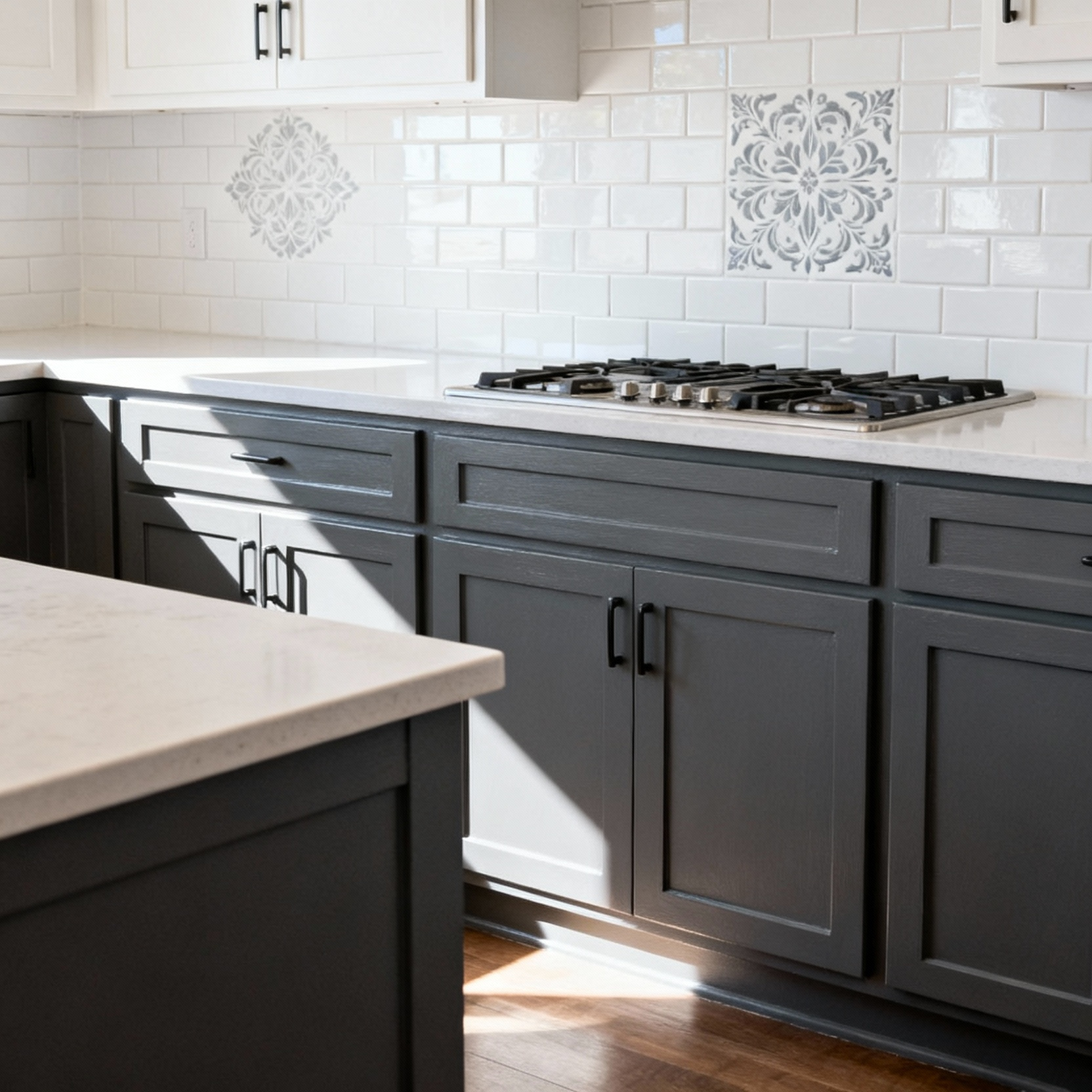
Unlock your culinary canvas! Discover 20 inspired ideas for kitchen decor on a budget. Olivia Bennett's expert advice for a creative, functional space.
The other day, I spent an afternoon meticulously organizing my oil paints. Not just tidying, but arranging them by color temperature, from the warmest cadmium reds to the coolest ultramarine blues. Standing back, the drawer wasn’t just organized; it was a palette, an inspiration in itself. The kitchen, I’ve always believed, is no different. It’s a studio for culinary artists, a workspace that should feed our creativity as much as it feeds our bodies. That moment of realization—when you see that the arrangement of your spices holds the same potential for beauty as a painter’s palette—is exactly what separates an intentional, soulful kitchen from one of accidental accumulation.
This is where we redefine what it means to create beautiful kitchen decor on a budget. It’s not about limitation; it’s a creative challenge. It’s about seeing the potential in every corner and transforming the mundane into the meaningful. Forget the idea that an elevated aesthetic comes with a high price tag. With an artist’s eye and a designer’s pragmatism, we can curate a space that is not only functional but deeply, personally inspiring.
Every great work of art starts with a strong foundation. These initial steps are your primer and first layers of paint—accessible, transformative ideas that set the stage for a masterpiece.
Paint is pure magic. It’s the most powerful and economical tool in any designer’s kit for completely shifting the energy of a room. Begin by refreshing your walls with a clean, light-reflecting neutral. Or, for a more daring approach, choose a single accent wall or even just the kitchen island to coat in a deep, dramatic hue. The key is impeccable preparation: clean, sand, and prime your surfaces for a finish that looks flawlessly professional.
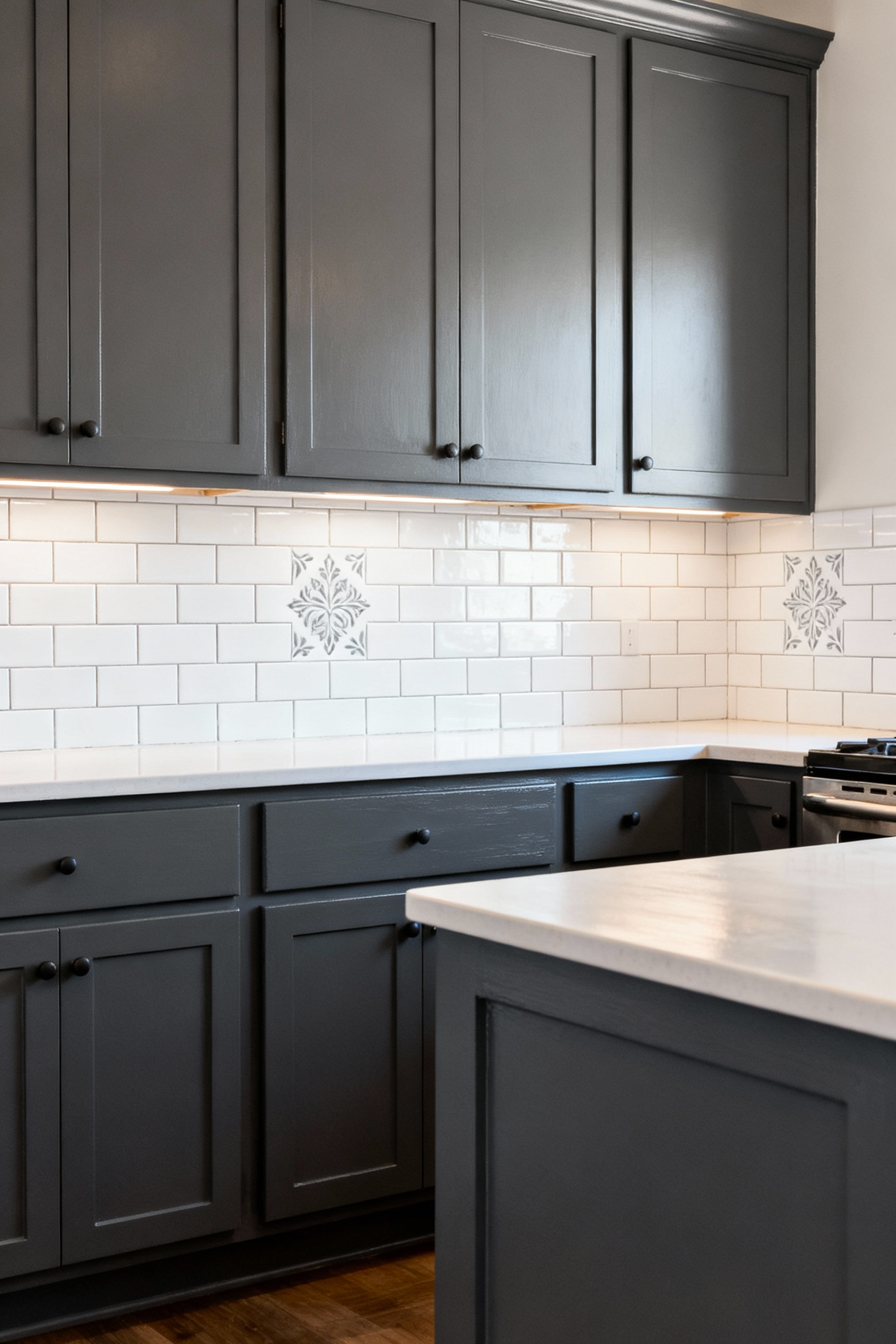
Once you’re comfortable, think like a painter adding depth to a canvas. A two-toned cabinet treatment—darker lower cabinets to ground the space and lighter uppers to create an airy feel—introduces a sophisticated dynamic. In my creative studio design practice, I’ve seen how a single painted element can define a ‘making zone.’ The same principle applies here—a bold color on your pantry door can designate that area as the heart of your culinary creations, turning a functional spot into an intentional stage.
Think of cabinet knobs and pulls as the jewelry of your kitchen. A quick swap is the easiest way to inject personality into a builder-grade space. You can find stunning, affordable options online, at flea markets, or in antique shops. Will you choose sleek matte black bars for a modern edge, or warm brushed brass knobs for a touch of timeless elegance?

This small change has a huge ripple effect on the room’s entire composition. What I tell my artist clients is to consider the tactile experience—the satisfying weight of a solid metal pull or the smooth feel of a ceramic knob. This is about more than just looks; it’s about engaging the senses in your creative workspace. It’s an intentional detail that makes the daily act of opening a drawer feel just a little more special.
The most impactful (and free) first step to any redesign is a thoughtful declutter. Before you add anything new, you must first create space. Clear every single item off your countertops and ask: Is this beautiful? Is this useful? Does it bring me joy? Anything that doesn’t make the cut gets stored away, donated, or discarded.
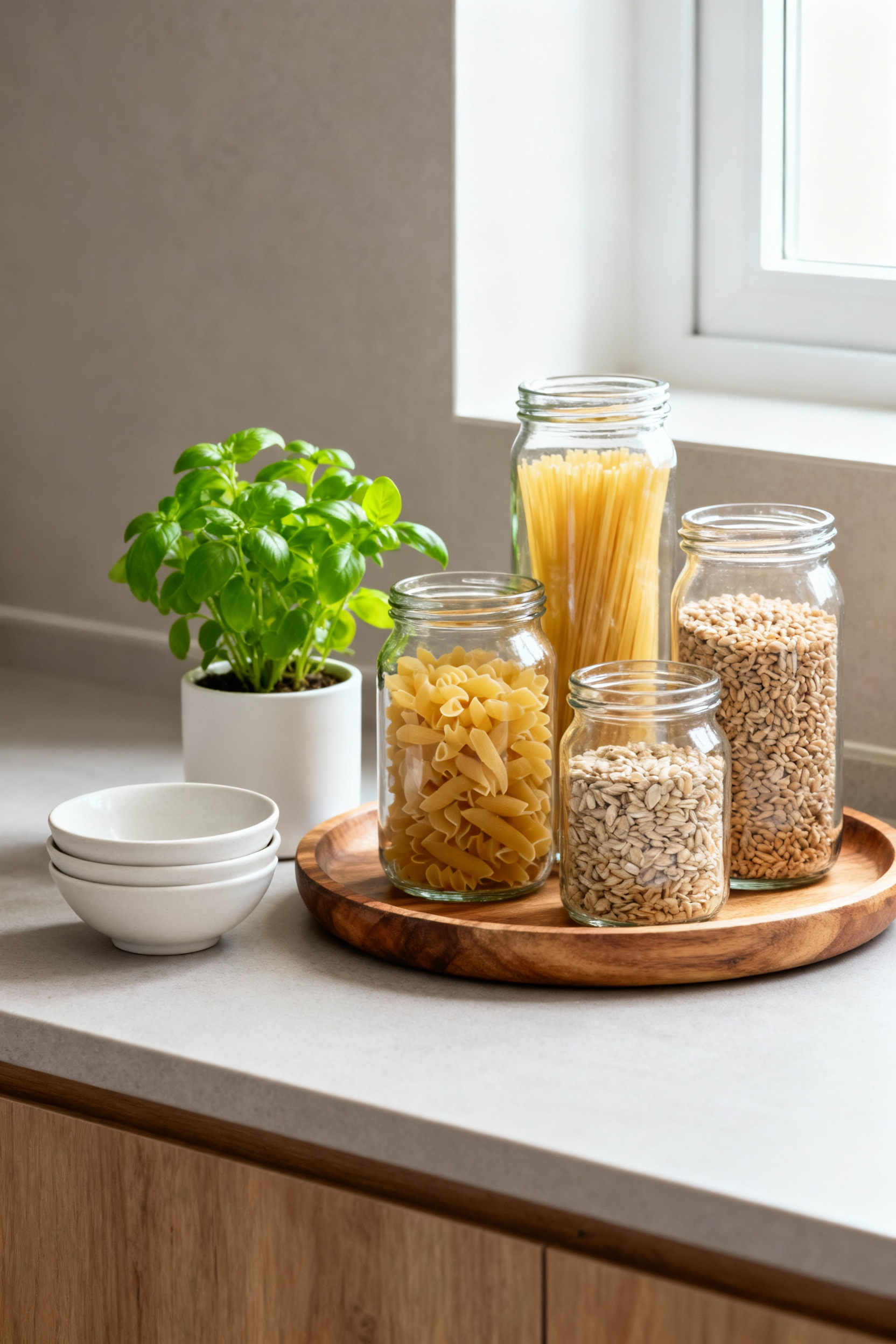
This act of curation creates what artists call ‘negative space’—the quiet areas in a composition that allow the key elements to shine. Your uncluttered countertop is your negative space. It provides visual rest and creates a calm, focused environment where creativity can flourish. A kitchen crowded with gadgets feels chaotic; a kitchen with thoughtfully chosen, beautiful tools feels like a well-equipped studio.
If you have open shelving, don’t treat it like overflow storage. Treat it as a gallery for your most beautiful everyday objects. This is where you curate small vignettes that tell a story about who you are. Start by grouping items with similar colors, materials, or shapes. A stack of clean white plates, a small potted herb, and a beautifully textured wooden bowl create a simple, elegant composition.
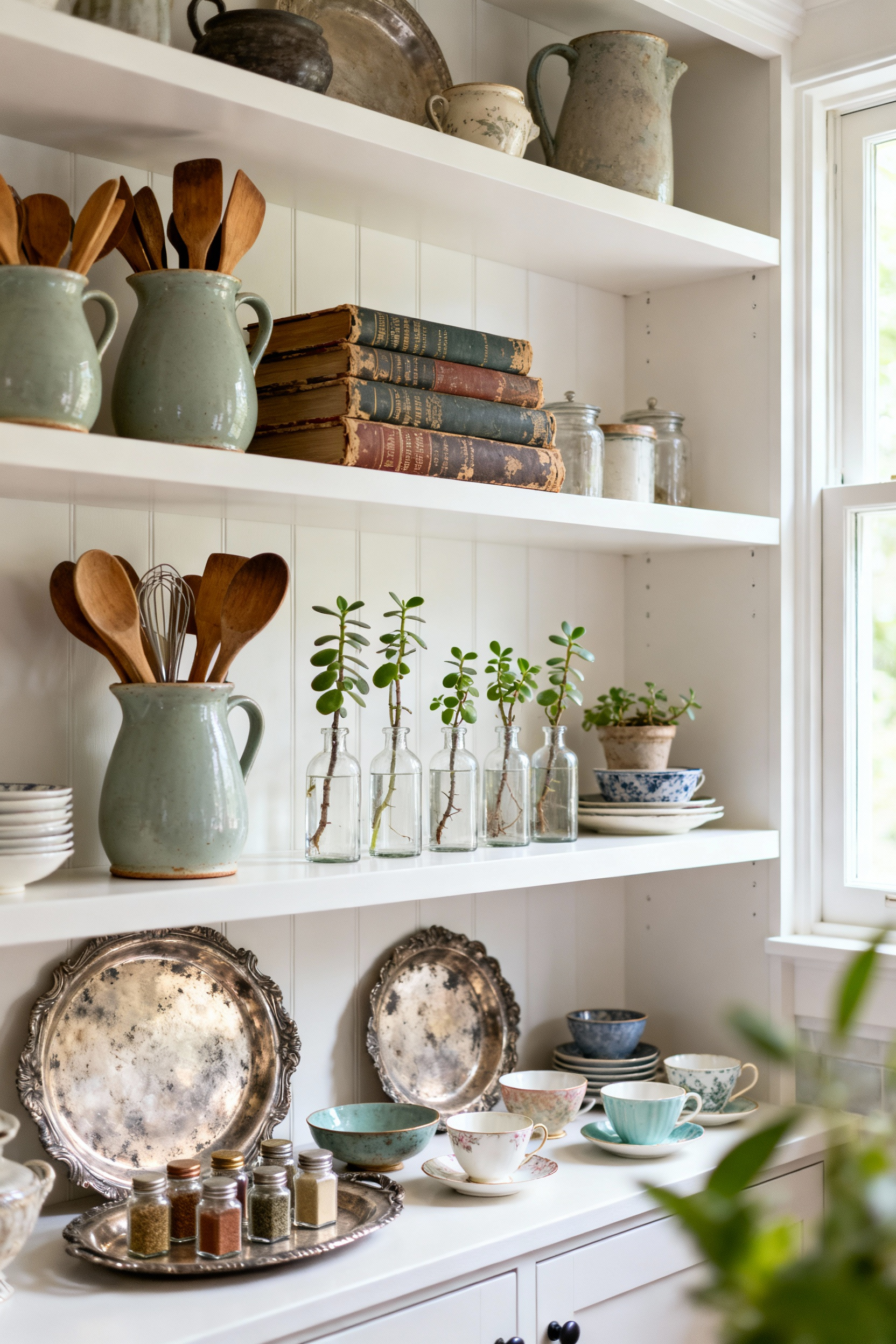
From my work designing craft rooms, I know open shelving is less about storage and more about curating inspiration. Think of it as your kitchen’s ‘mood board’—display the handmade pottery, the cookbook with a stunning cover, the copper measuring cups that spark joy. Let your utilitarian objects become an intentional part of your decor.
Introducing life into a space instantly elevates its energy. An indoor herb garden is a beautiful, multi-sensory addition—it adds a vibrant splash of green, fills the air with fresh scents, and provides ingredients right at your fingertips. Start simply with a few hardy herbs like basil, mint, and rosemary in simple terracotta pots on a sunny windowsill.
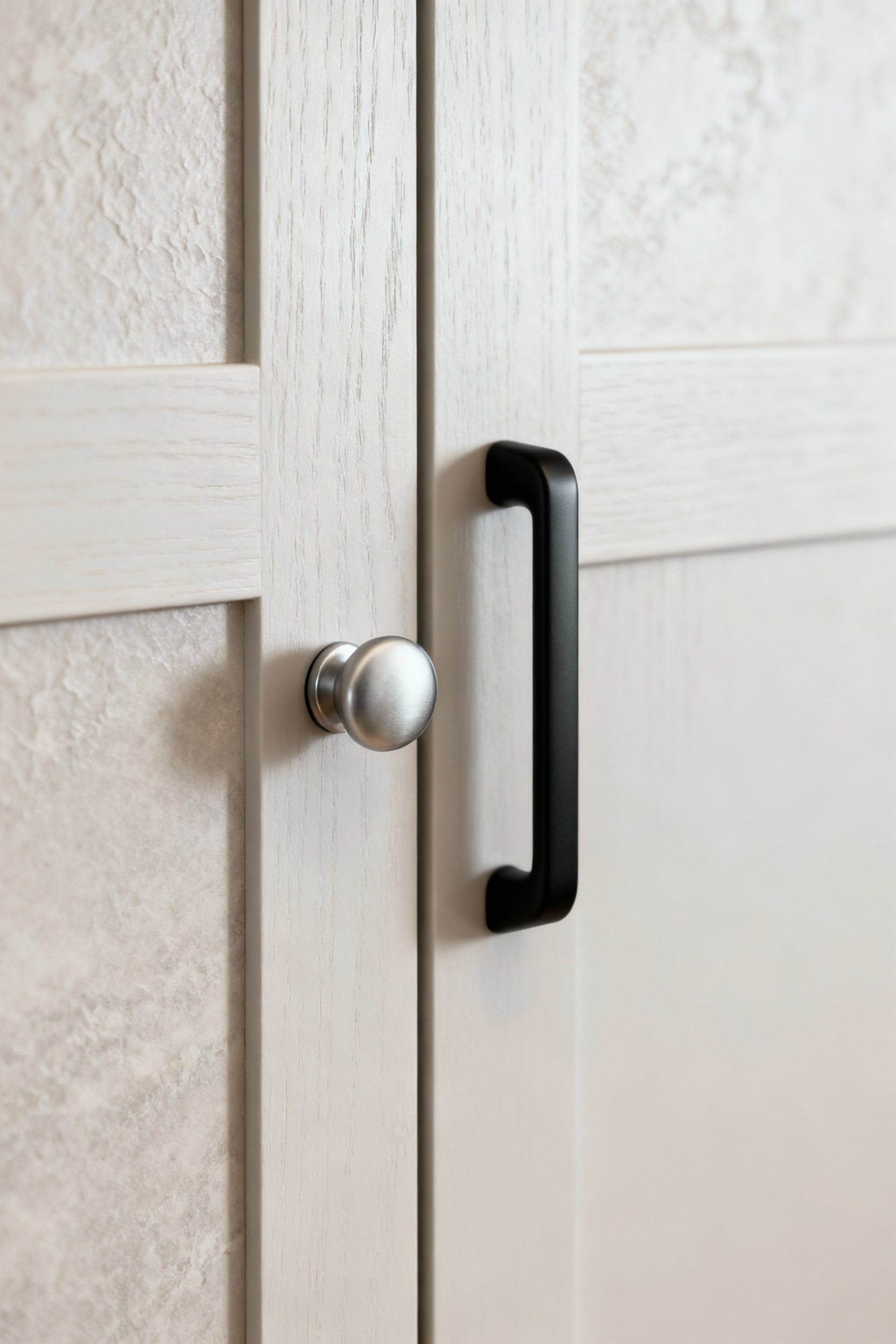
As your confidence grows, you can create a more dramatic installation. A wall-mounted vertical planter or a collection of mismatched vintage tins can become a living focal point. I’ve noticed in my work that creative people are deeply connected to process and materials. Tending to a living thing and using it in your culinary work creates a beautiful, cyclical connection that enriches the creative experience of cooking.
With our foundation in place, we can now add the nuanced layers that give a space its unique character. This is where we play with texture, pattern, and bespoke details.
Soft textiles are crucial for balancing the hard surfaces of a kitchen. A simple runner in front of the sink adds comfort underfoot, introduces color and pattern, and helps define the primary workspace. Look for durable, washable flat-weave rugs or vintage finds that bring a sense of history.
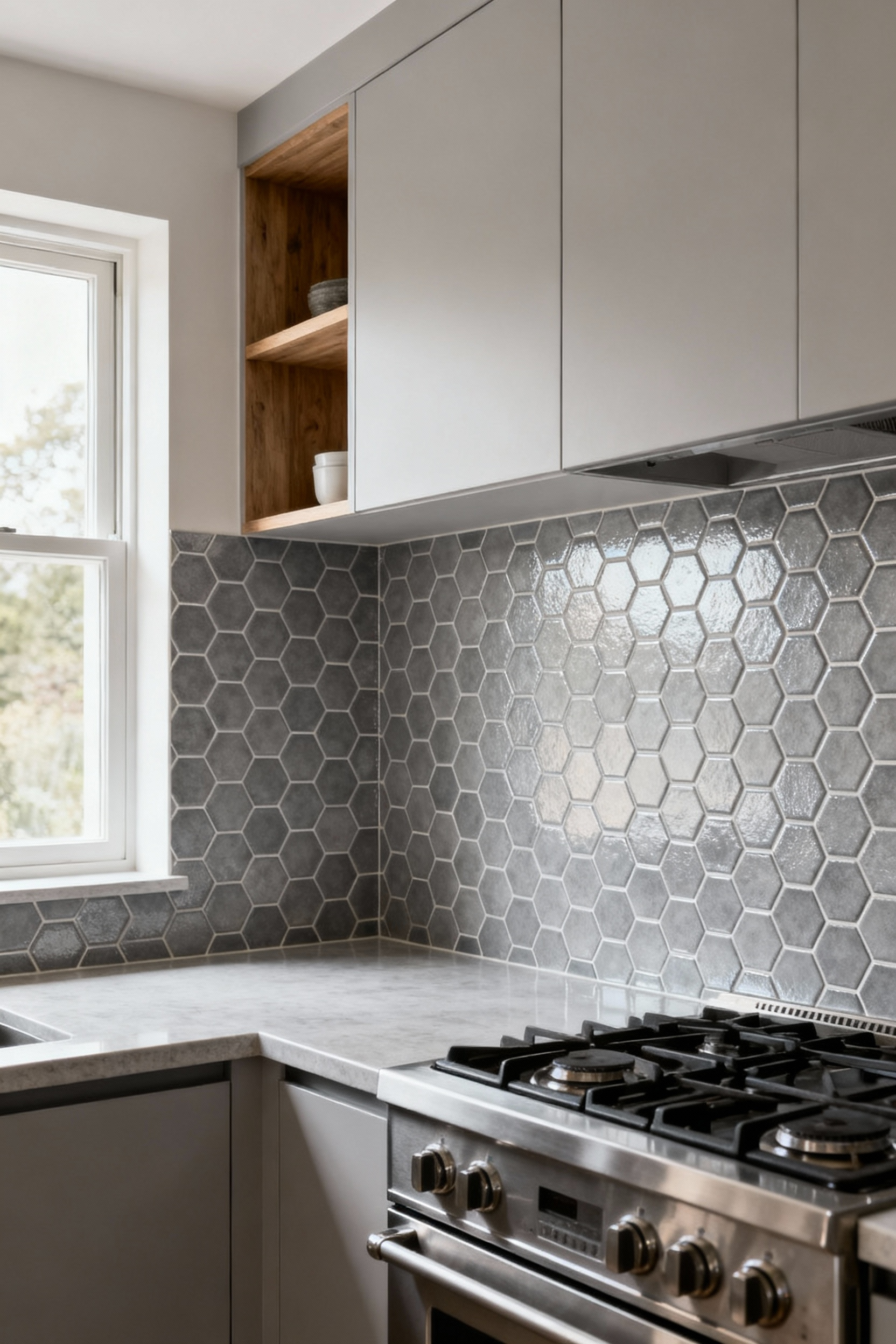
Beyond the floor, consider a simple cafe curtain, beautiful linen tea towels draped over the oven handle, or custom cushion covers for your bar stools. Years of designing artist studios taught me that even in the most industrial-looking loft, a simple textile can add indispensable warmth and acoustic softness. It’s a small touch that makes a space feel less like a laboratory and more like a home.
Lighting is everything. It sets the mood, ensures safety, and can make or break a design. A dated, generic “boob light” can drag down the entire room. Swap it for an inexpensive but stylish pendant, a modern flush-mount, or even a flea market chandelier for a touch of drama.
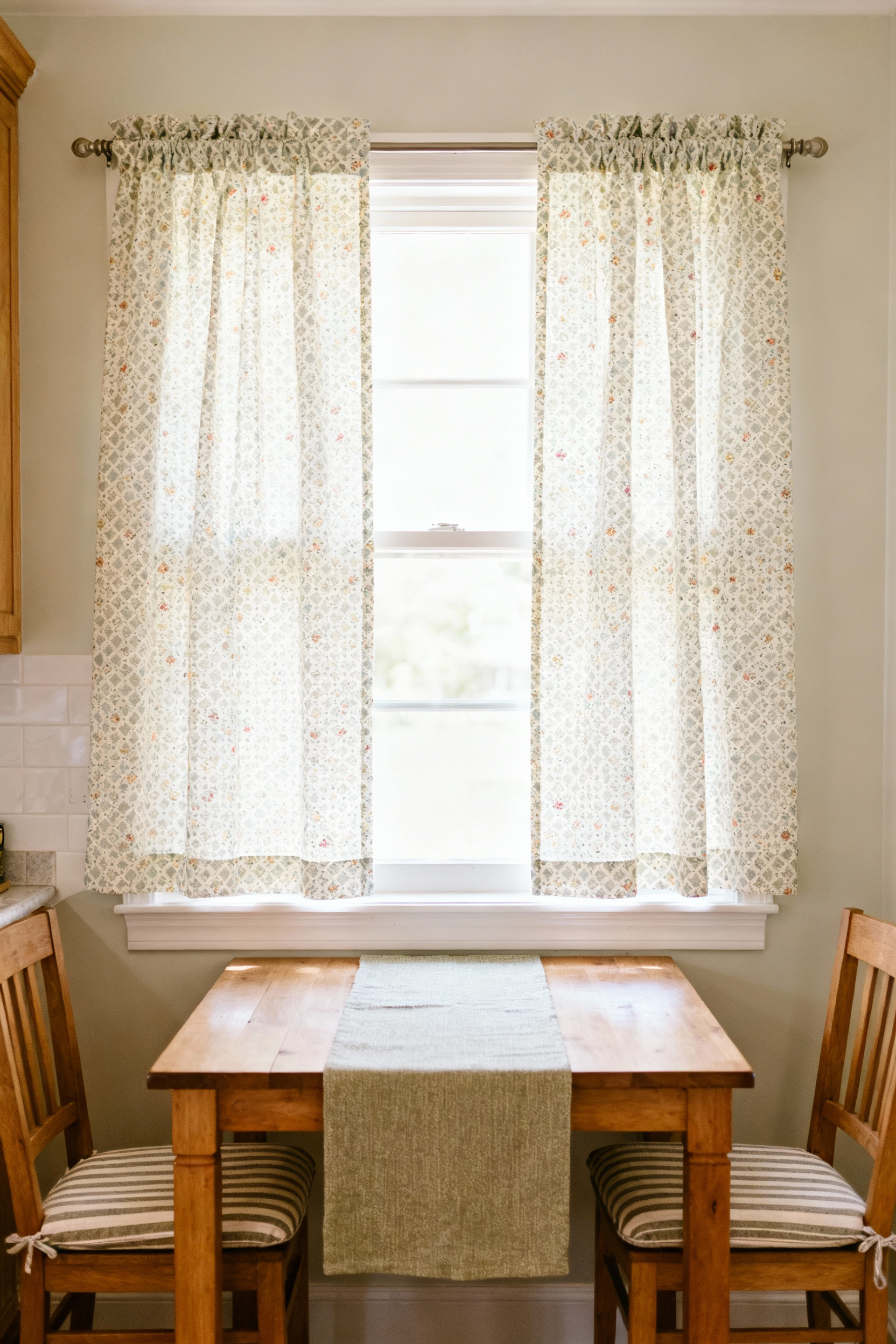
I learned this when designing a studio for a detail-oriented illustrator: you need both soft ambient light for mood and bright, focused task lighting for precision work. It’s exactly the same in a kitchen. Add under-cabinet LED strips—they’re surprisingly affordable and completely transform your countertops into a well-lit stage. Dimmers are a non-negotiable for creating an atmosphere that can shift from bright and energetic to low and intimate.
A custom-tiled backsplash can be pricey, but you can achieve a similar impact for a fraction of the cost. High-quality peel-and-stick tiles have come a long way, offering convincing replicas of ceramic, marble, and even tin. It’s a weekend project that requires patience and a steady hand but delivers a dramatic transformation.
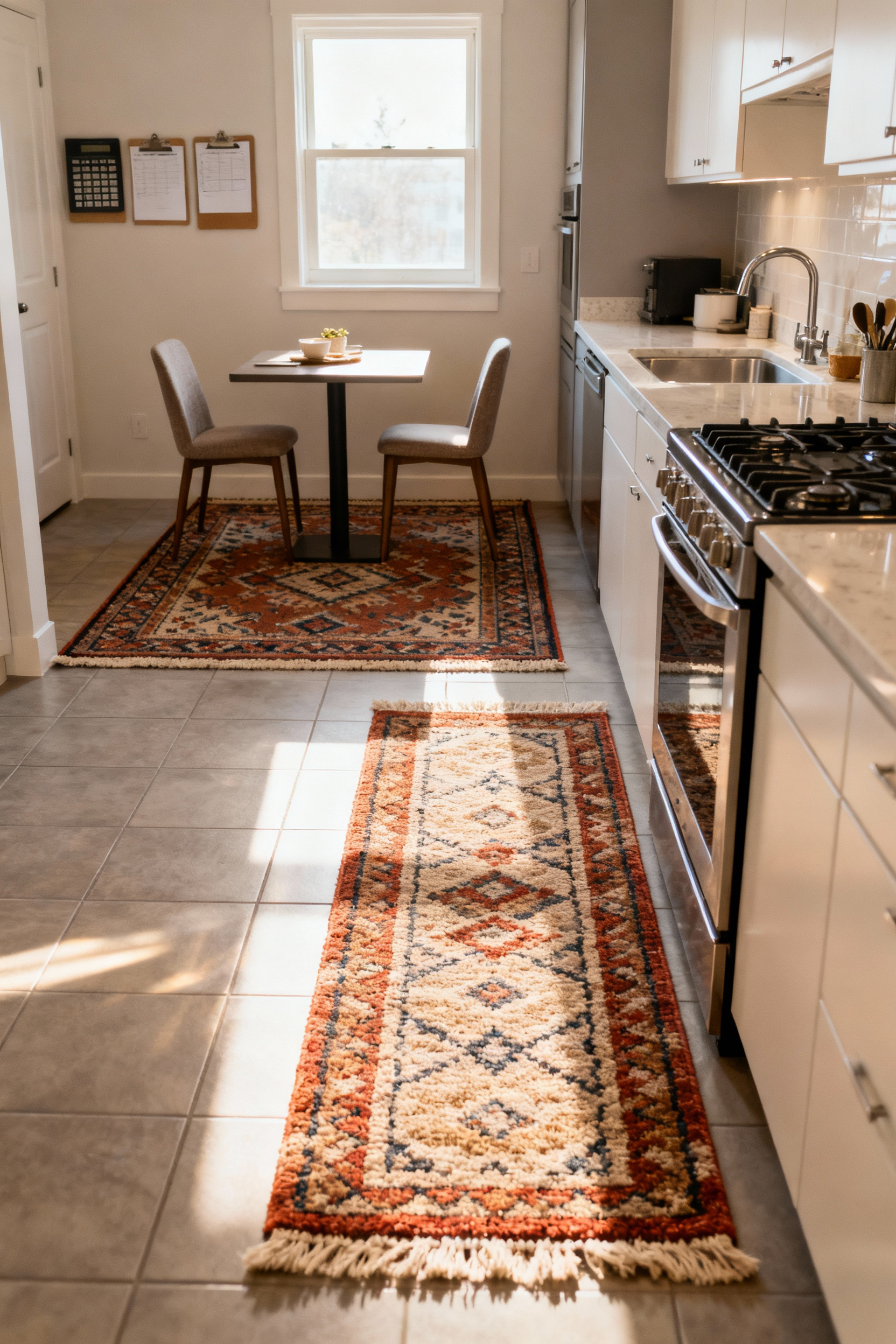
For a more artistic approach, consider a painted backsplash. Use high-gloss, durable paint to create a clean, seamless look, or get creative with a stenciled pattern for a bespoke touch. What really gets me is the opportunity to treat this area like a canvas. You have complete control over the color and pattern, making it a truly personal statement.
If you’re feeling bold—or you’re a renter—removable wallpaper is your best friend. Use it to create a stunning accent wall, line the back of your cabinets for a surprise pop of pattern, or even cover the front of a plain refrigerator. The commitment is low, but the design impact is incredibly high.

Choose a pattern that complements your overall color story. A botanical print can bring the outdoors in, a simple geometric can add modern structure, and a subtle texture can add depth without overwhelming the space. In my professional experience, a well-chosen pattern can be the single element that ties an entire room’s design together.
Your refrigerator is a huge block of visual real estate. Instead of letting it be a purely functional monolith, turn it into a curated display. Use stylish magnets to create a gallery of personal photos, children’s art, or beautiful postcards. Keep it edited and intentional—think of it as a vertical art installation.
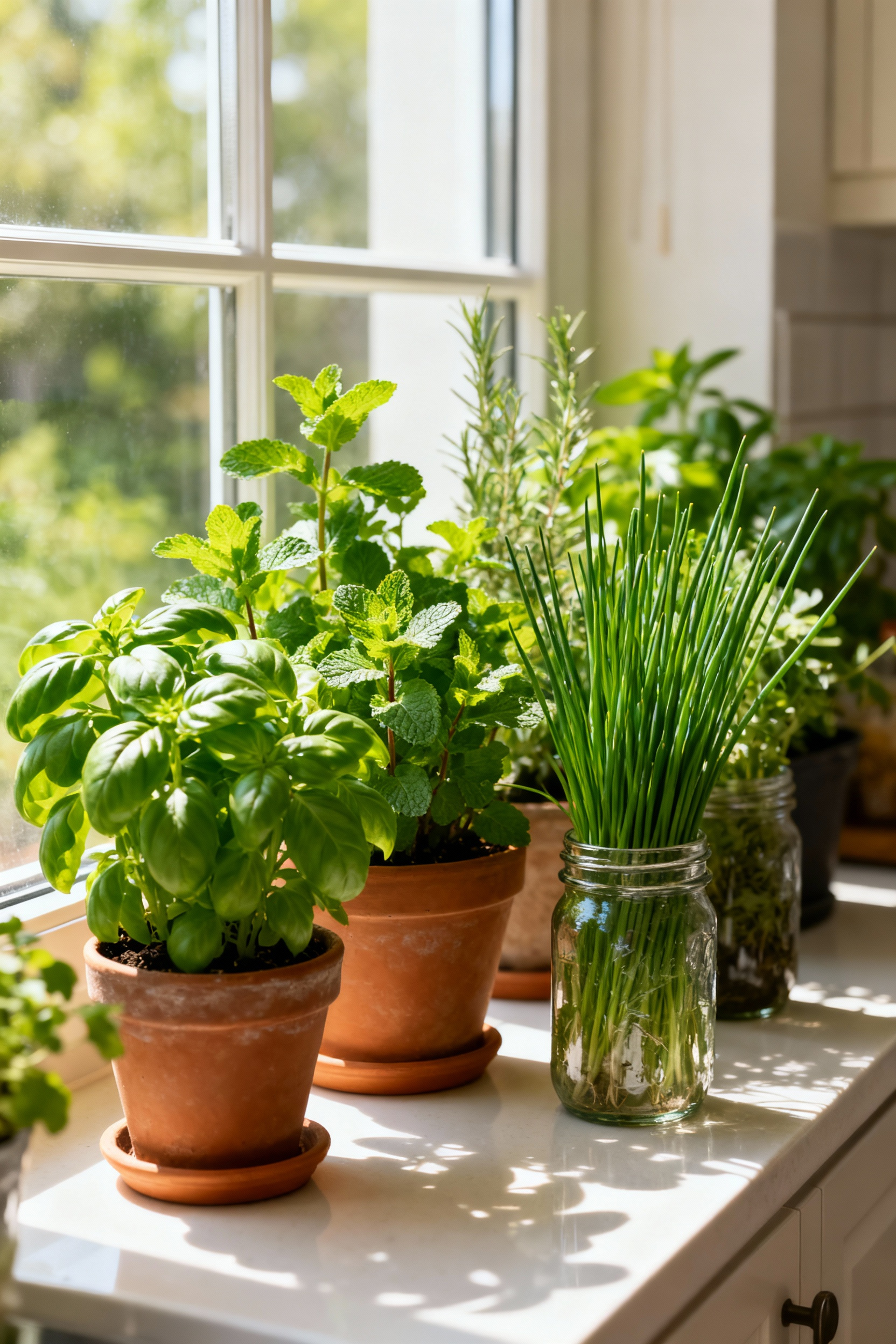
A more advanced hack is using liquid chalk markers on a dark fridge to create ephemeral art or write out your weekly menu. I love this idea because it brings the raw, process-oriented energy of a studio chalkboard into the kitchen. It’s functional, personal, and a constant invitation to be creative.
This is where we move from individual projects to a holistic design philosophy. These strategies are about weaving all your choices together into a singular, cohesive aesthetic that feels deeply personal and professionally executed.
Why should art be confined to the living room? Dedicate a wall in your kitchen or breakfast nook to a gallery of culinary-inspired pieces. Frame beautiful vintage cookbook illustrations, botanical prints of herbs, or even your own food photography. Mix in textural items like a small woven trivet or a beautiful antique cutting board for added dimension.

The key is to create a sense of cohesion through your choice of frames. You can collect mismatched vintage frames and unify them with a single color of spray paint, or opt for simple, modern frames of the same style. I’ve seen this play out when clients display tools of their trade—in this case, beautiful spoons, whisks, or platters can become part of the art itself.
A countertop cluttered with a mismatched rainbow of appliances can create visual chaos. The solution? Curate them. First, store away anything you don’t use daily. For the items that remain, aim for a cohesive color story. You can achieve this over time by replacing items as they wear out, or you can get inventive.
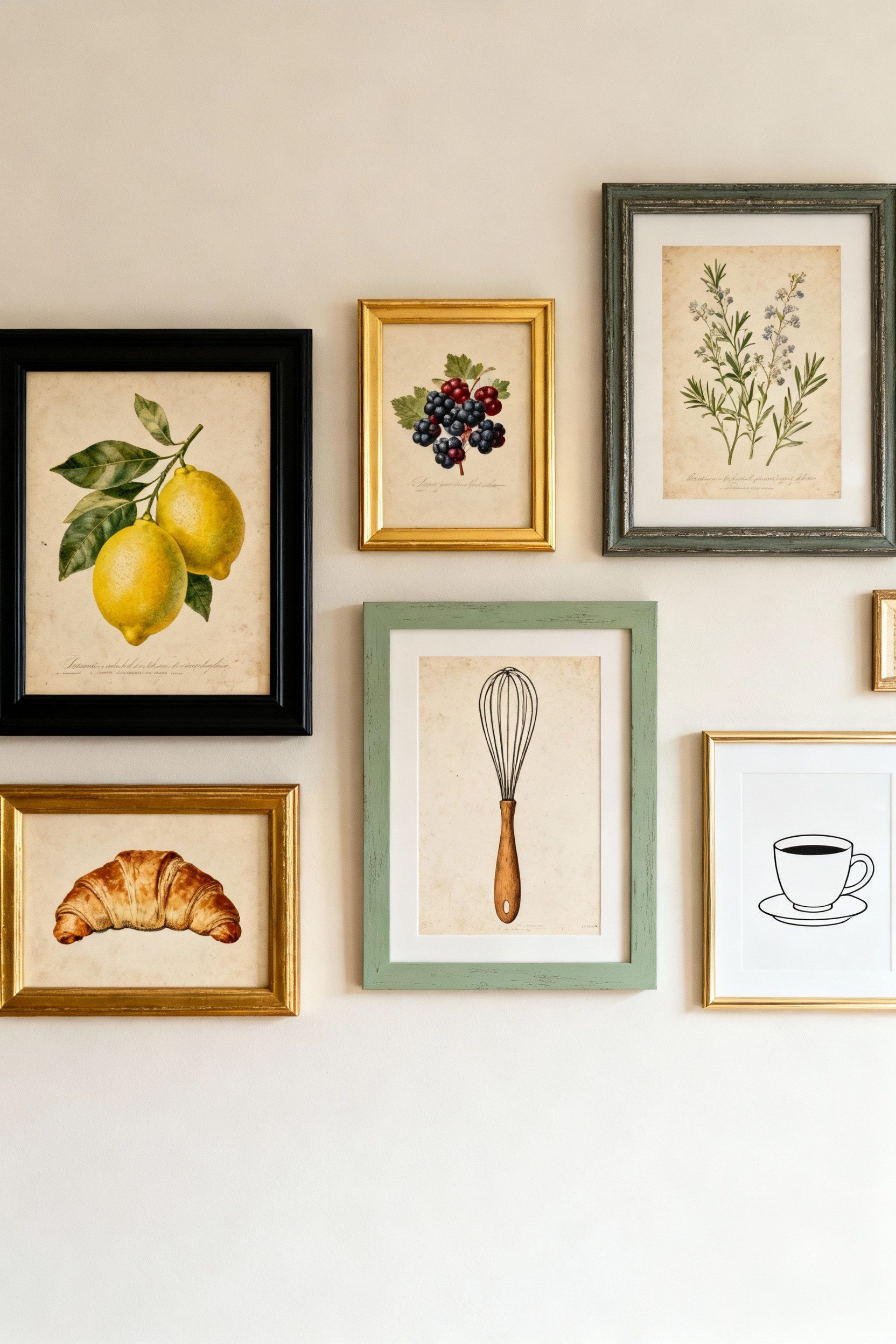
For some appliances, a can of appliance-grade spray paint or a high-quality vinyl wrap can work wonders. What I tell my clients and readers is that visual harmony creates a sense of calm and order, which is essential for a focused, creative mindset. A sleek, unified collection of tools instantly makes your workspace feel more professional and intentional.
If new countertops aren’t in the budget, don’t despair. Modern, high-quality contact paper offers a surprisingly durable and beautiful temporary solution. With realistic marble, granite, and butcher block finishes available, you can completely change the look of your kitchen in an afternoon.
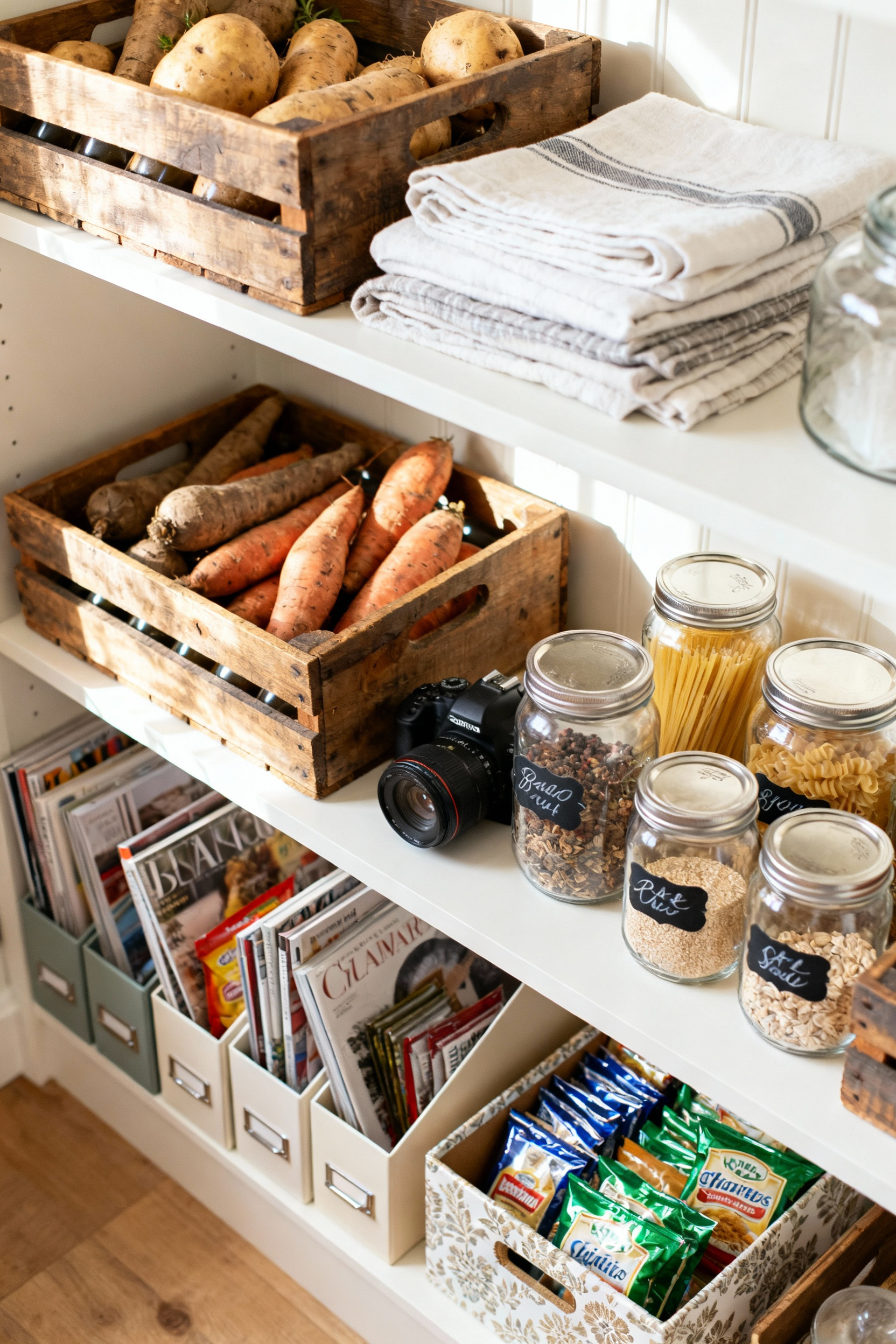
This requires meticulous application—watch tutorials, take your time, and use a squeegee to eliminate bubbles. I’m always drawn to resourceful solutions that empower people to take design into their own hands. This project is the ultimate testament to the idea that a stylish vision, not a big budget, is the most important ingredient.
Never underestimate the power of simple trim. Adding inexpensive molding to the top of your standard flat-front cabinets can give them the look of custom shaker-style doors. A simple chair rail or beadboard paneling on a wall adds texture and classic architectural character for very little cost.
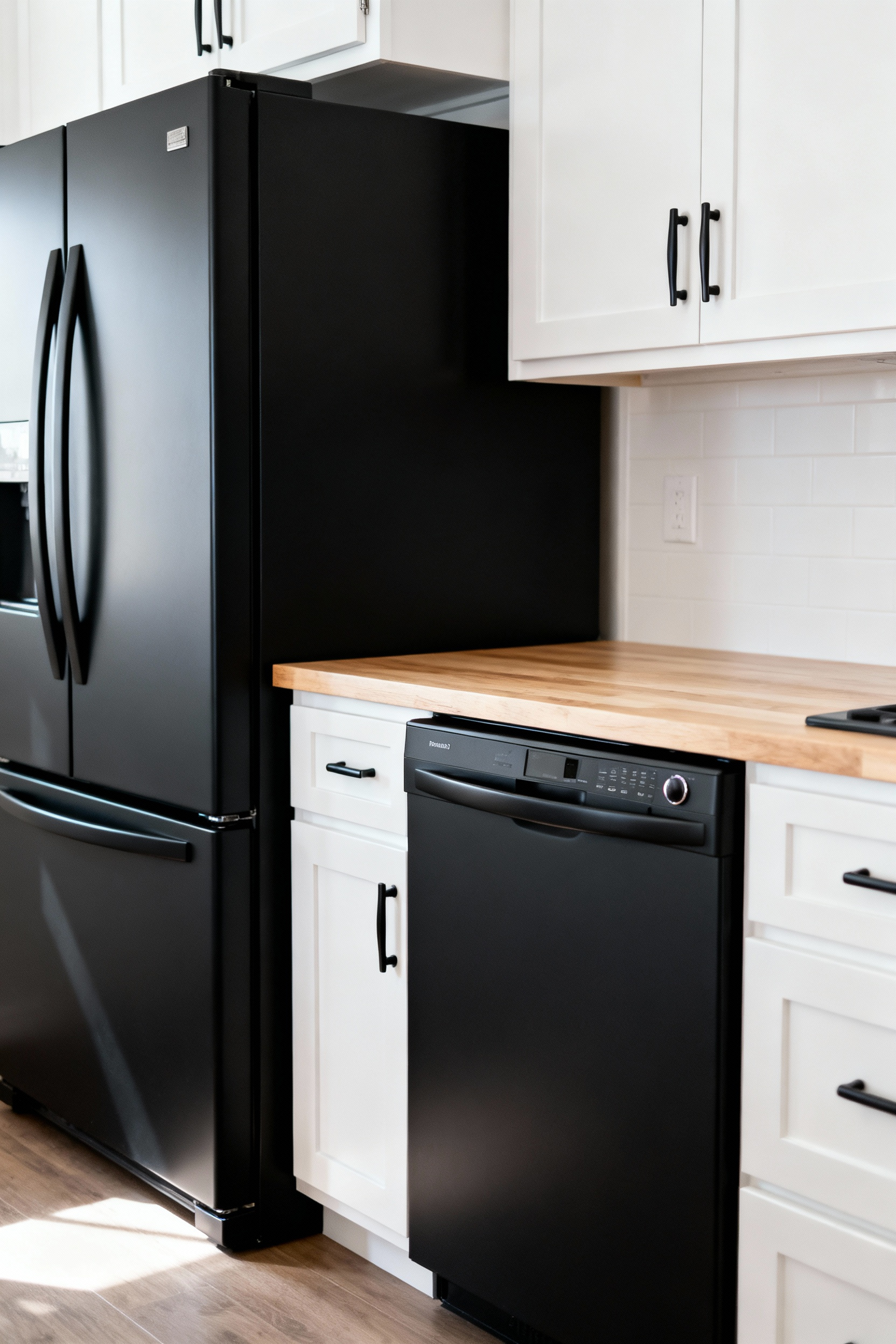
From my work in older artist studios, I’ve seen how original architectural details provide a sense of soul and history. You can replicate that feeling by adding your own. It’s these thoughtful layers of detail that elevate a space from a simple box to a room with character and substance.
Can’t afford to retile? Cover it up. Durable, waterproof vinyl floor cloths or peel-and-stick floor tiles offer a fantastic way to introduce pattern and color while hiding a floor you don’t love. They are easy to install, easy to clean, and—best of all—not permanent.
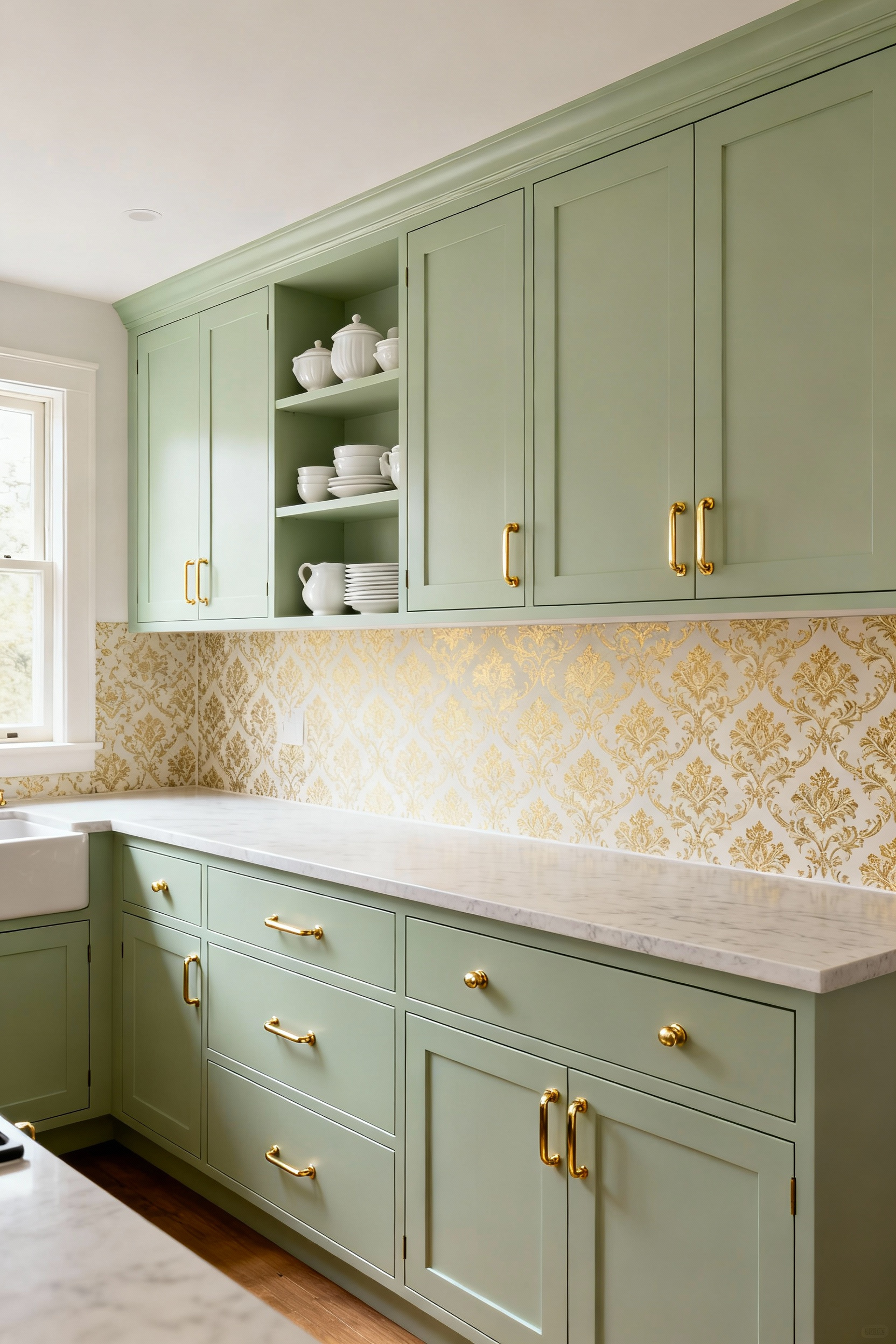
Think of your floor as the fifth wall. It’s a massive surface with huge design potential. A bold geometric pattern on the floor can anchor the entire room and become the focal point, allowing you to keep other elements simple. It’s a smart, strategic move that delivers an outsized aesthetic return.
The final stage is about embodying a design-forward mindset. It’s about understanding that your kitchen is not a static project to be finished, but an evolving space that grows and changes with you.
A home with soul is a home that tells a story. The fastest way to add that narrative layer is by incorporating vintage and second-hand pieces. Hunt for antique stoneware crocks to hold your utensils, a beautifully worn wooden stool to tuck into a corner, or a set of etched glass canisters for your pantry.
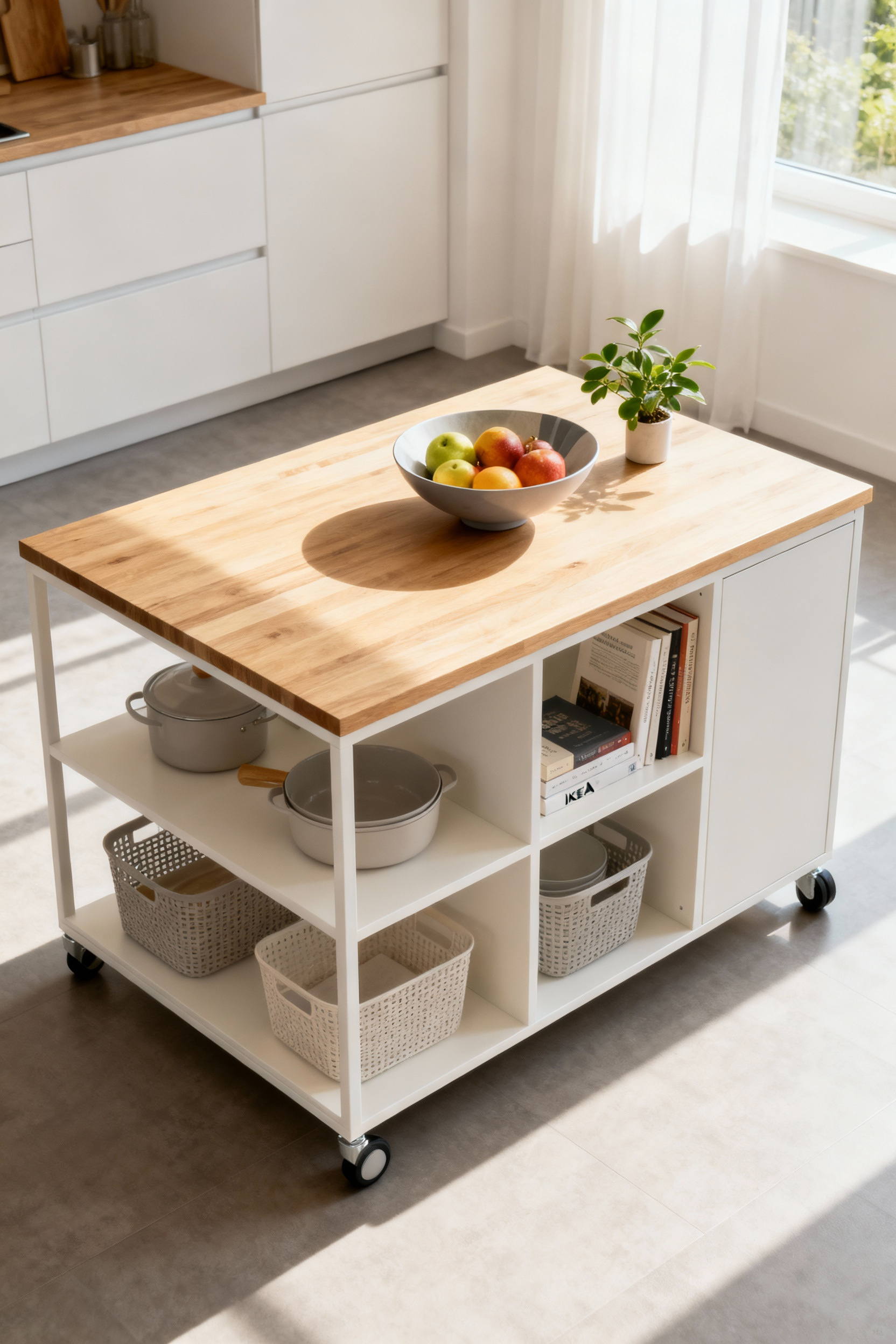
These objects bring with them a history and a patina that new items simply can’t replicate. My entire professional philosophy is built around creating spaces that feel unique and personal. A found object is inherently one-of-a-kind, ensuring your kitchen won’t look like a page from a catalog.
When you’re short on space, look up. Install a simple pegboard to hang pots, pans, and utensils, turning them into a functional and decorative display. Add a narrow picture ledge above a doorway to display small art and cookbooks. Mount a magnetic knife strip on the wall to free up counter and drawer space.

I’ve learned from designing compact urban studios that every square inch matters. Utilizing vertical space isn’t just a storage hack; it’s a design strategy. It draws the eye upward, making the room feel taller and more dynamic, while keeping your most-used tools within easy reach.
A kitchen island adds invaluable prep space and storage, but it doesn’t have to be a custom-built expense. A sturdy old dresser, a vintage console table, or two back-to-back IKEA bookcases can be transformed into a brilliant island with a little creativity. Add a butcher block top, a fresh coat of paint, and maybe some caster wheels for mobility.
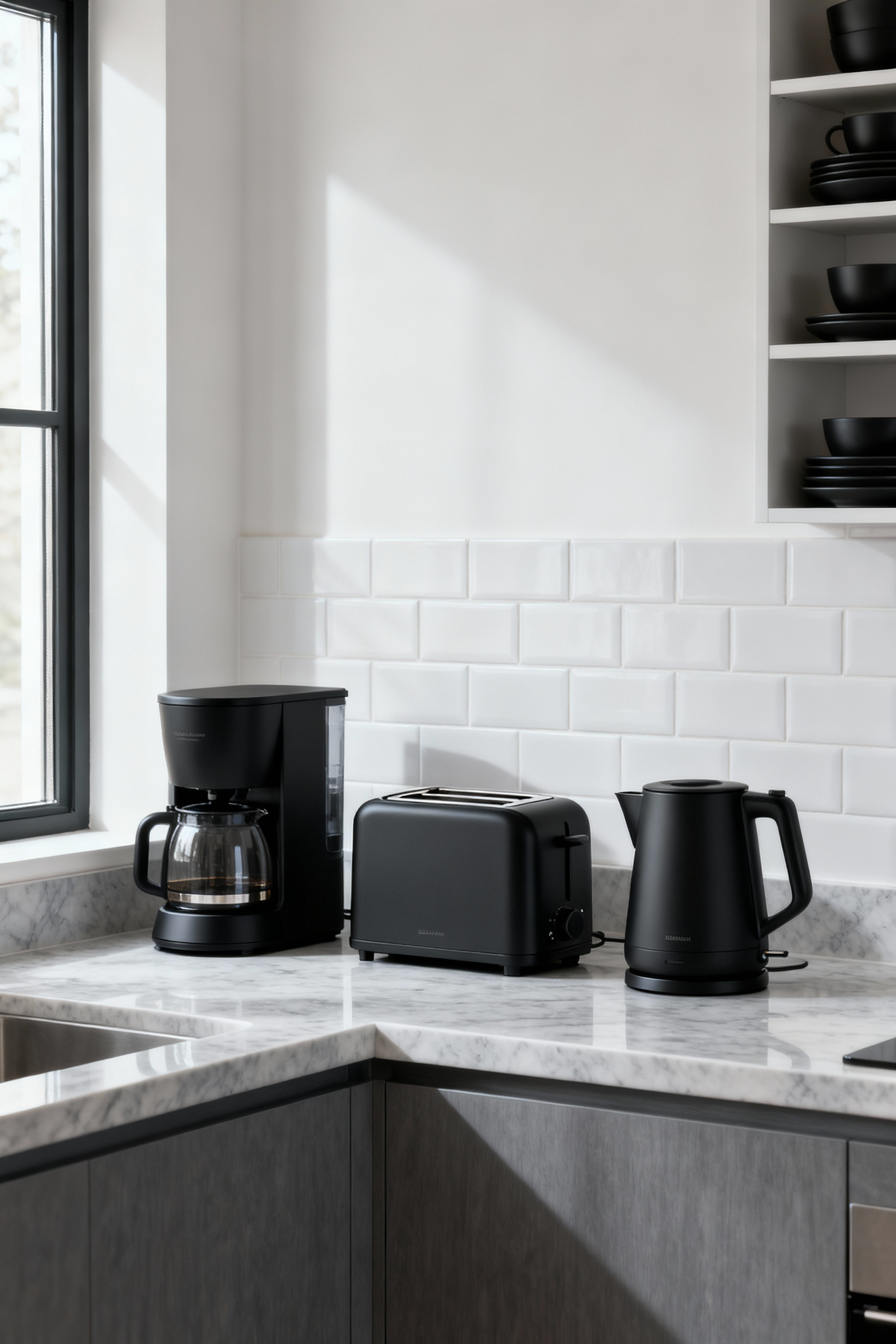
This is the ultimate expression of resourceful design. You are taking a piece with its own history and character and giving it a new purpose in the heart of your home. It’s a functional, budget-friendly solution that guarantees your island will be a unique conversation piece.
Bare windows can feel cold and unfinished, while heavy curtains can block precious natural light. Find the happy medium. A simple Roman shade in a beautiful linen fabric, an inexpensive bamboo blind that adds natural texture, or a breezy café curtain that provides privacy without sacrificing light can complete your kitchen’s design.
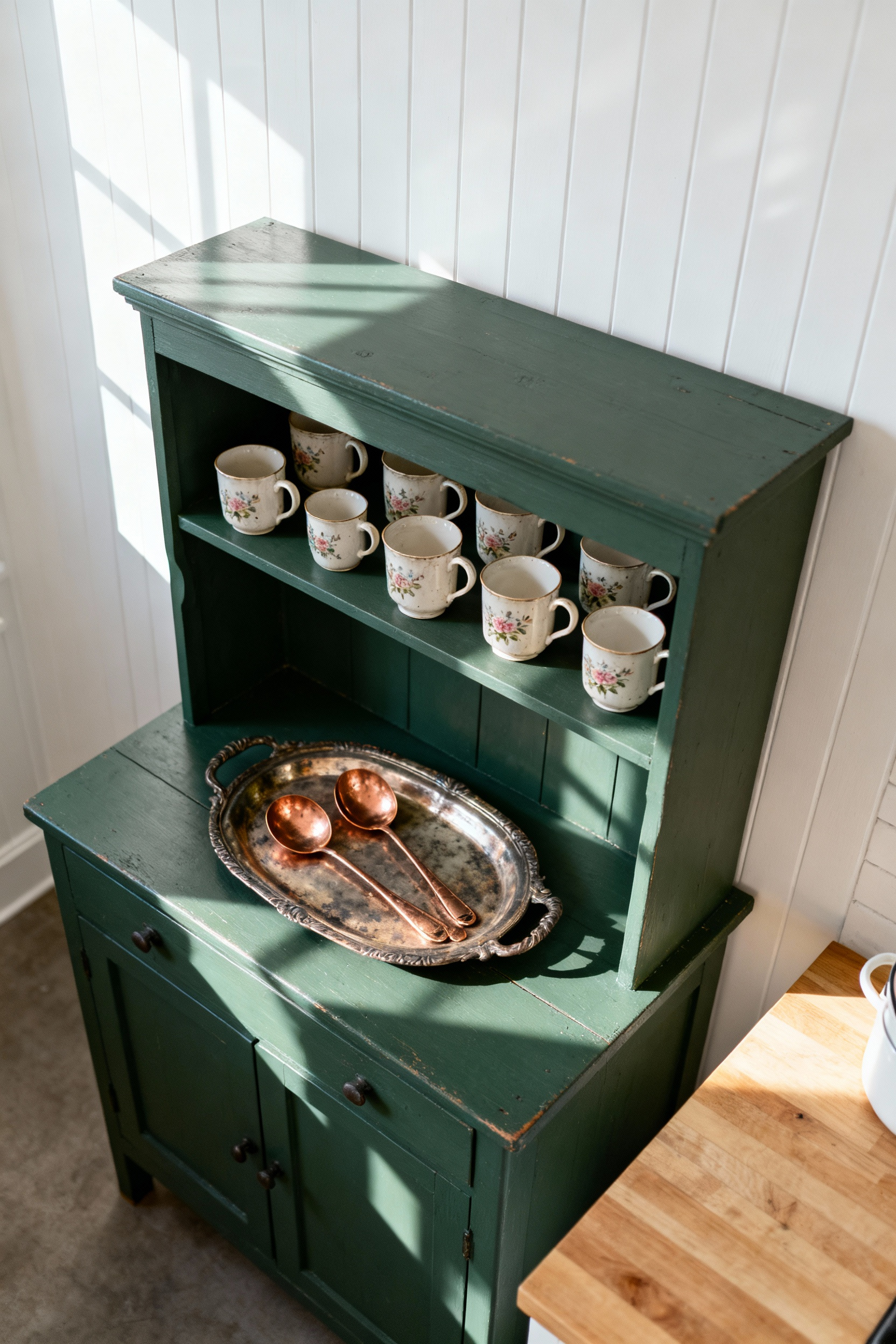
In any creative workspace, natural light is the most valuable asset. The right window treatment should frame your view and control the light, not obstruct it. This is a finishing touch that, like a frame on a painting, makes the entire composition feel complete and intentional.
Finally, the mastery level is about planning. Your kitchen doesn’t need to be perfect overnight. Create a long-term plan, a sort of design savings goal. Maybe this year you paint the cabinets and swap the hardware. Next year, you save up for a new light fixture. The year after, you tackle the backsplash.
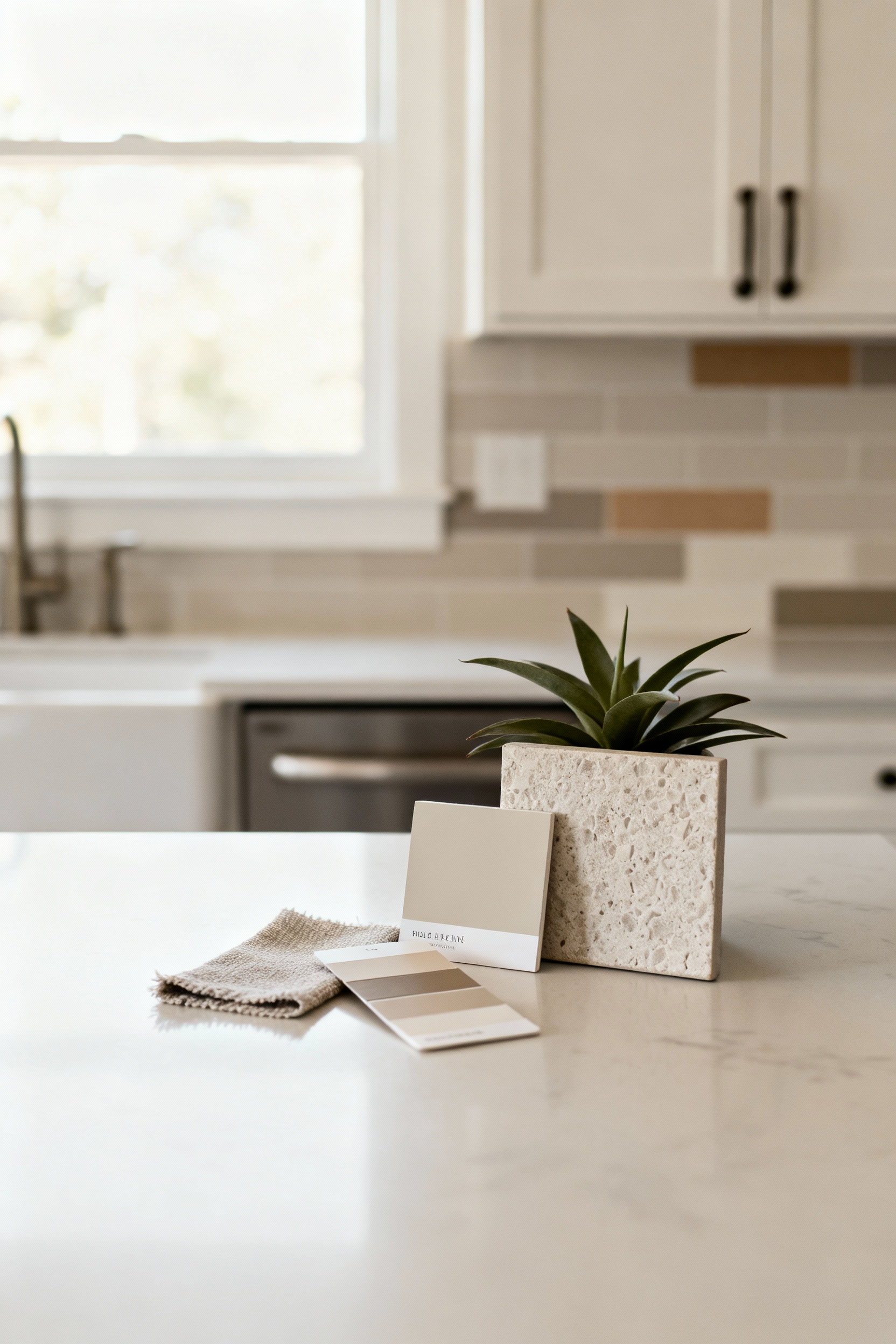
This intentional, phased approach relieves financial pressure and allows your design to evolve organically. The most inspiring creative spaces I’ve designed are never “finished.” They are always in a gentle state of flux, reflecting the growth and changing passions of the person who uses them. Embrace the journey and enjoy the process of slowly, thoughtfully curating a kitchen you truly love.
We’ve covered a lot of ground, from quick cosmetic fixes to more involved DIY projects. But the single thread connecting all these ideas is the power of intention. An elevated kitchen isn’t the result of an unlimited budget; it’s the result of thoughtful choices, creative problem-solving, and a willingness to see the beauty and potential in the everyday.
Your kitchen is a canvas. It’s waiting for you to pick up your brush. Start with one small change—a new set of knobs, a decluttered counter, a pot of fresh basil. Let that small victory fuel the next one. Don’t just live in your space; create it. You have the vision and the resourcefulness to build a kitchen that not only functions beautifully but also nourishes your creative soul every single day.